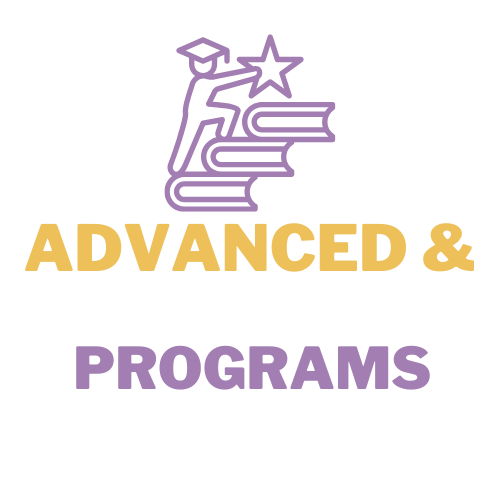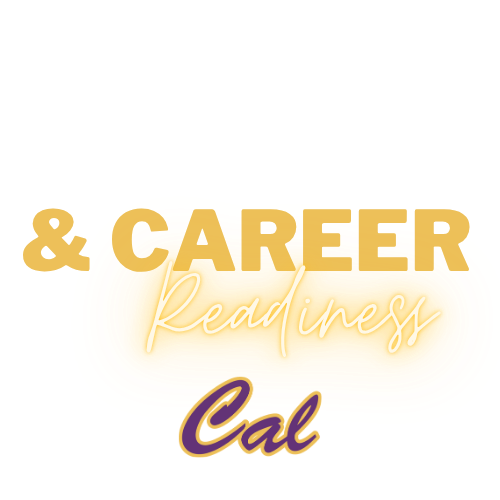Financial Aid
Student financial aid consists of any source of funds available to students and their families to pay for the cost of ANY post-secondary education.
Main types of aid:
The main sources of financial aid are:
- Federal Government
- State Government
- Institutions (colleges & universities)
- Private Sources (associations, foundations, employers, unions)
National FAFSA Completion Week: April 15-19
Last year, Michigan’s class of 2023 left $110 million dollars on the table because they did not fill out the FAFSA. It is estimated that 70% of Michigan seniors will be eligible for some financial aid. This year, there is a new FAFSA process that is taking many people less time to submit. However, we know there have been some setbacks. Despite this, we know that filing the FAFSA is the most important step to getting money for your student’s education. This includes many trades programs, community colleges and four-year institutions. Contact a counselor or staff member to set up time to help you. Also, Michigan Achievement Scholarship offers money if you qualify (this is not an academic scholarship) - check by filing the FAFSA! This checklist will help you prepare for filing the FAFSA. We are here to help you and your student(s).
If you have already filed, please make sure your student checks their status online. They should be receiving financial aid information from colleges later this month. Please continue to check your email and monitor the college's social media for timeline updates. You may also use the college cost calculator on most college’s websites to estimate cost prior to getting your financial aid package. We know this has been challenging and slow-going, but we are here to support.
Financial Aid Calculator
Net price calculators are available on a college’s or university’s website and allow prospective students to enter information about themselves to find out what students like them paid to attend the institution in the previous year, after taking grants and scholarship aid into account.
Net Price
Net Price is the amount that a student pays to attend an institution in a single academic year AFTER subtracting scholarships and grants the student receives. Scholarships and grants are forms of financial aid that a student does not have to pay back.
![]() Search for a school's calculator at collegecost.ed.gov
Search for a school's calculator at collegecost.ed.gov
Free Application for Federal Student Aid (FAFSA)
Most financial aid programs require a student to file the FAFSA annually. This is done electronically, via the link below, between October 1 and May 1 (to meet the State deadline).
Financial aid funding can be:
- Merit-based: Designed to assist students who show merit in areas such as: academics,sports, leadership, music, art, dance, etc.
- Need-based: Determined by completing the FAFSA. Students who demonstrate financial need based on the results of the FAFSA may be eligible to receive an award.
CSS Profile
The following Michigan colleges, universities, and scholarship programs use CSS Profile as part of their financial aid process for some or all of their financial aid applicants in the populations listed below. Please check schools’ websites or contact the institution for more information.
Free Tuition
Michigan residents can receive FREE college tuition at the following institutions, if they meet financial criteria. Visit the links to learn more.
- Albion College - Albion College Promise
- Central Michigan University (NEW program - info coming soon!)
- Eastern Michigan University - Education First Opportunity Scholarship
- Ferris State University - Ferris Launch
- Grand Valley State University - Grand Valley Pledge
- Michigan State University - Spartan Advantage Program
- Oakland University - Golden Grizzlies Tuition Guarantee
- University of Michigan - Go Blue Guarantee
- Wayne State University - **NEW** Wayne State Guarantee
FAFSA First Steps
Federal Student Aid (FSA) ID
Prior to completeing the FAFSA, the student and at least one parent, must obtain a Federal Student Aid ID (FSA ID). This serves as a legal signature and confirms your identity.
Gather Information
You can start the FAFSA, save it and come back later to finish it...but eventually, you will need the information below.
- Social Security Number
- Driver's license number (if applicable)
- Alien Registration Number
- Federal Tax Information or Tax Returns
- Records of untaxed information (child support, interest, veteran benefits, etc)
- Record of assets (cash, savings, checking, stocks, bonds, real estate)
- Up to 10 schools you are interested in attending
![]() Follow the link here for questions about dependency?
Follow the link here for questions about dependency?
Complete the FAFSA
Submit the FAFSA, paying attention to deadlines, by:
- Electronic Form
- Mail-in PDF application
- Electric submission by your college or career school
![]() Fast Web: What You Need to Complete the FAFSA
Fast Web: What You Need to Complete the FAFSA
Get free assistance and answers at fafsa.gov or 1-800-4-FED-AID.
FAFSA Next Steps
MiSSG
After completing the FAFSA, you should:
1. Create a MiSSG Student Portal account to complete aid program applications and monitor your eligibility status.
-
Their office awards the first college/university listed on your FAFSA. If you decide to attend a different institution, please update this in the MiSSG Student Portal or call 1-888-447-2687.
2. IF you are a Senior, eligible for the Tuition Incentive Program (TIP), you must complete your application by August 31 of your graduating year.
- To check your TIP eligibility and complete an application, log into the MiSSG Student Portal or call 1-888-447-2687.
Award Letter
You’ll receive an aid offer from each college or career school you applied to and listed on your FAFSA, stating the amount of aid you could receive at the school.
-
Review and compare your offers
- Decide which school to attend based on the school’s net cost and how well the school suits your needs
 Everything You Need to Know About Financial Aid Letters
Everything You Need to Know About Financial Aid Letters
Resources
Michigan Student Aid
Federal Student Aid
-
 Federal Student Aid Youtube Channel - videos covering Types of Aid, the FSA ID, the FAFSA and more!
Federal Student Aid Youtube Channel - videos covering Types of Aid, the FSA ID, the FAFSA and more!
Calvin College
Misc
-
 Completing the FAFSA 2020-2021 (old, but helpful)
Completing the FAFSA 2020-2021 (old, but helpful)  FAFSA and Financial Aid Myth
FAFSA and Financial Aid Myth





